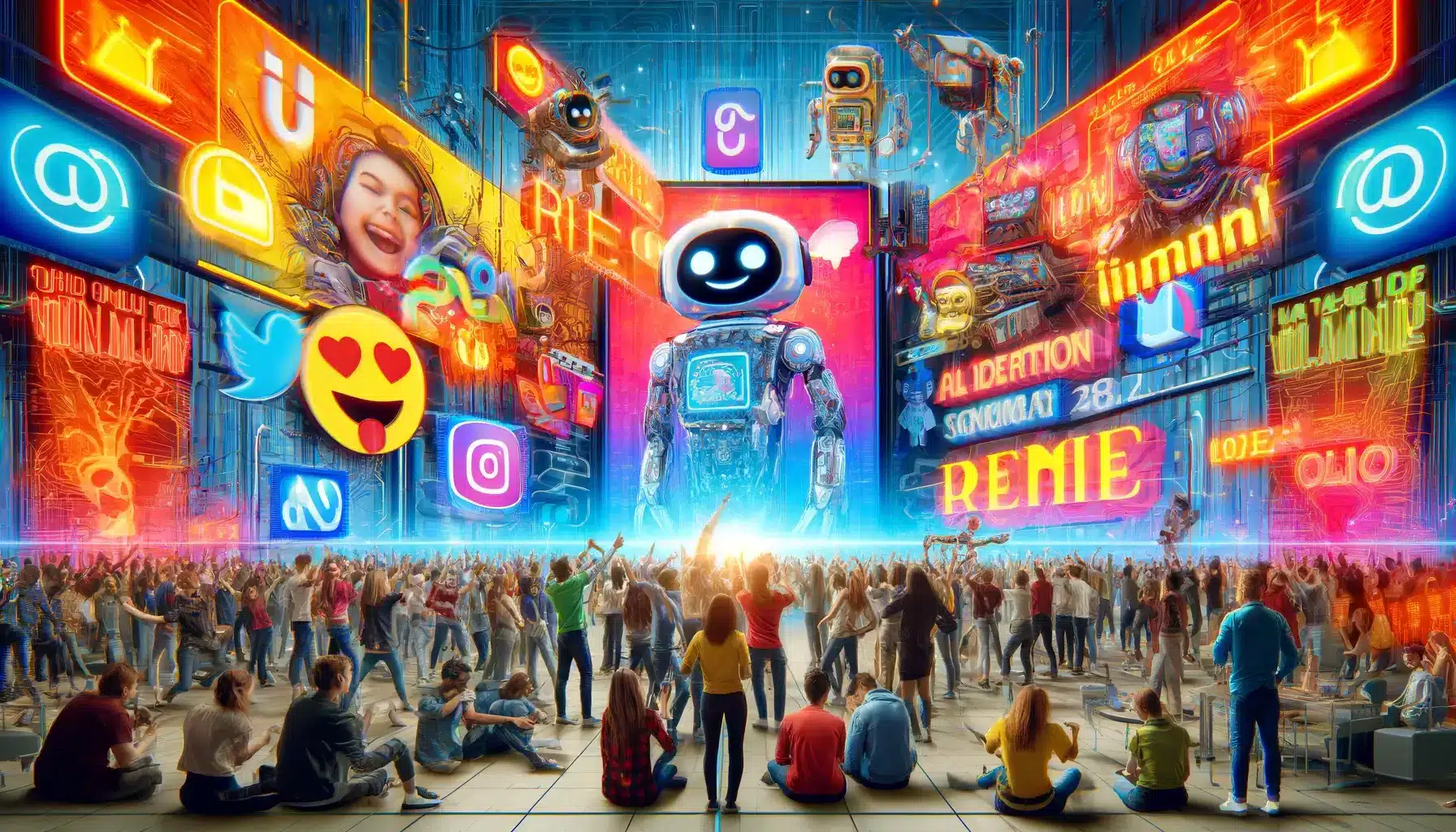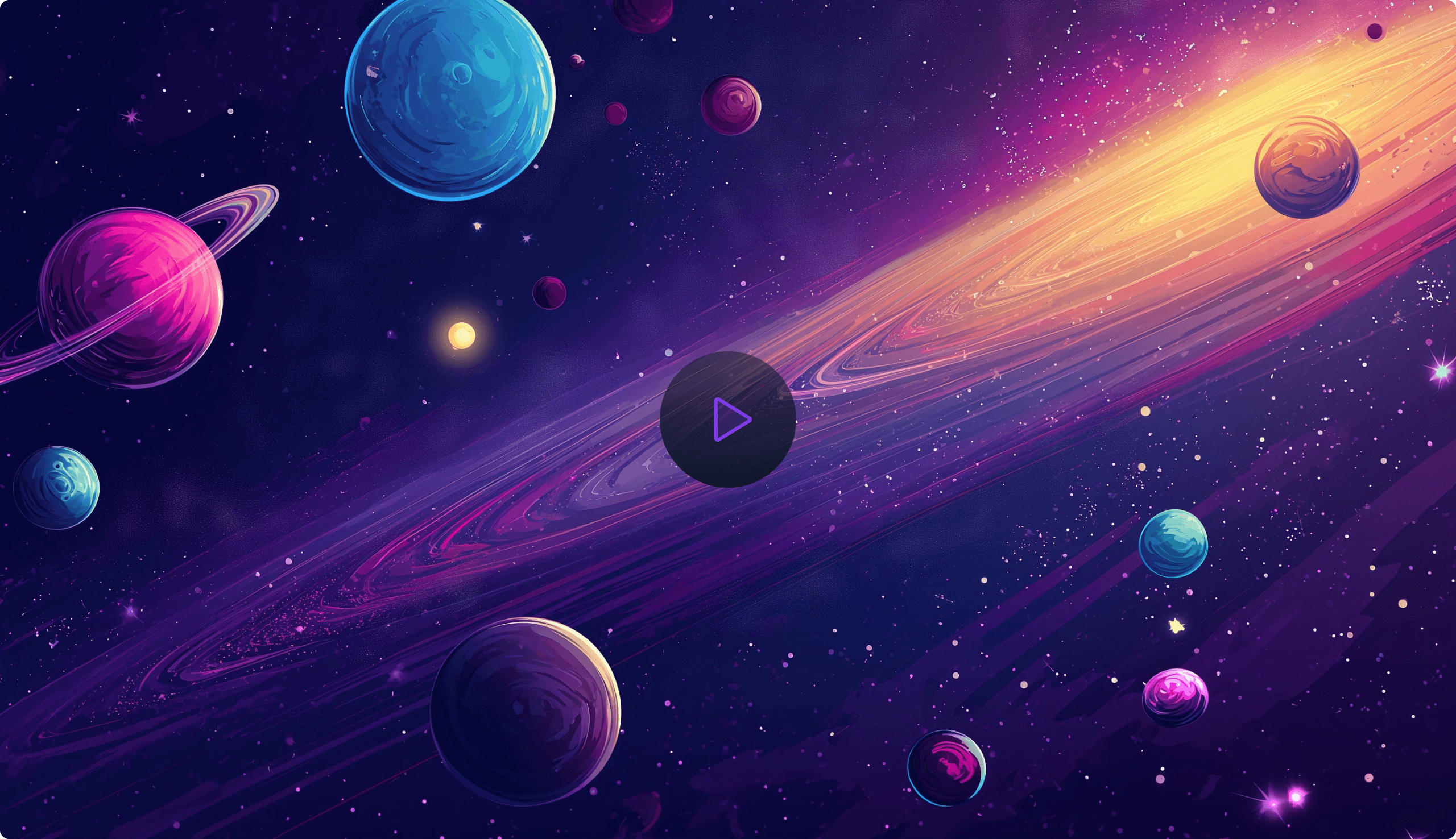The lead generation landscape has been swiftly evolving in 2024, much of it thanks to artificial intelligence. AI is more than just a means of automating tedious processes; it is a revolutionary factor that is reshaping the way companies approach potential customers. Namely, younger populations that have been raised in digital environments look for authenticity, individuality, and creative and engaging content.
Consequently, organizations develop and deploy innovative AI strategies that rely on social media trends, viral content such as TikTok videos and memes, and the most recent technologies to integrate all of these elements into a highly interactive marketing campaign that appeals to a tech-savvy population. This post discusses the top seven super cool AI lead generation trends likely to take over 2024.
1. Leveraging Viral Video Marketing on Platforms like TikTok
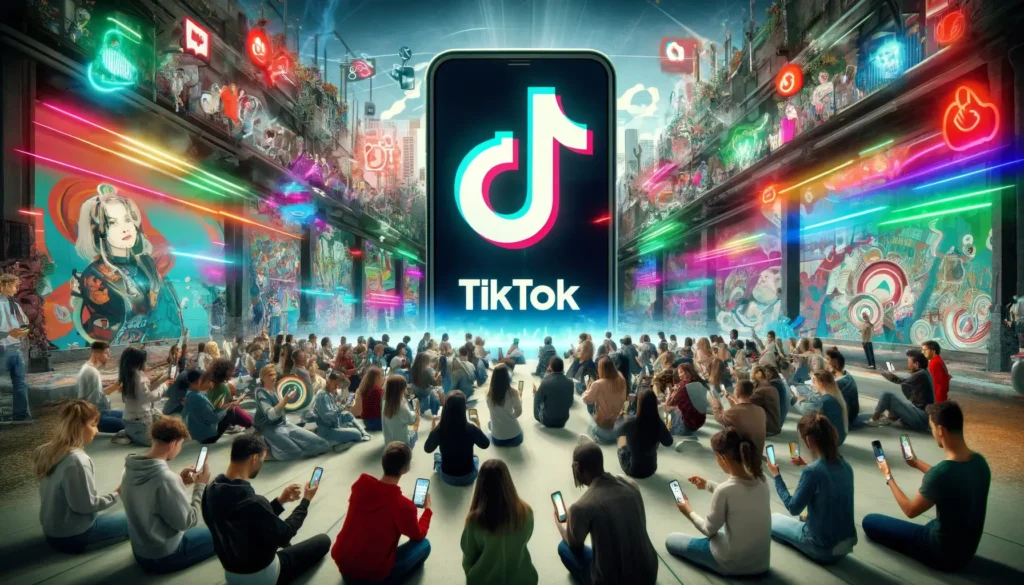
Thanks to its distinctive algorithm that highlights extremely engaging material, TikTok has emerged as a major player in the viral video marketing space, drawing in a youthful, active audience. Comprehending and utilizing these mechanisms enables brands to efficiently produce leads.
Using TikTok to Its Fullest Viral Potential
On TikTok, content that goes viral frequently consists of dance challenges, funny skits, engrossing tales, and brief educational segments that are all designed to immediately grab viewers’ attention. These forms allow brands to efficiently and quietly blend their marketing messaging.
Boosting Content Strategy with AI
- Analyzing Trends. AI determines popular subjects and user preferences to direct the production of timely and relevant information.
- Post Optimization. AI suggests the best times to post, along with modifications and hashtags to increase viewer interaction.
- Engagement Monitoring. AI keeps tabs on the performance of videos, offering in-the-moment data to hone tactics and enhance lead generating results.
Brands may better engage and convert the younger audience on TikTok by incorporating AI into their tactics and capitalizing on the platform’s viral nature. This methodical, data-driven strategy aids in optimizing conversion rates and reach.
2. Memes and Pop Culture for Engagement
Memes and pop culture references can be used to attract online conversations with the younger generations who regularly use them to interact and learn content.
Harnessing the Power of Memes and Pop Culture
Memes are popular among young people because they are typically simple to ingest, simple to understand, and frequently witty or enlightening. By hopping on board the most recent meme or pop-culture trend, brands may quickly acquire or improve street credibility . As a result, the brand has the potential to raise involvement, participation, and language.
AI Tools for Trend Identification and Meme Creation
The following are some significant ways that AI technology might enhance how corporations use pop culture and memes in their marketing strategies:
- Trend analysis. Artificial intelligence (AI) algorithms search social media and the internet in real time to find emerging trends and well-liked memes. This enables marketers to seize fresh ideas before they become popular.
- Content Creation. A few AI platforms have the ability to generate memes, either by automatically or by suggesting memes based on popular formats that contain messaging exclusive to a brand.
- Performance tracking. AI examines the distribution and performance of meme-based material on various platforms to determine what appeals to target audiences the most. Future efforts can benefit from this data in order to better capture and convert audience interest.
3. Interactive and Immersive Experiences
Through the provision of immersive and interactive experiences, the integration of Augmented Reality (AR) and Virtual Reality (VR) technology has revolutionized marketing methods.
Advancements in AR and VR for Marketing
With the help of AR and VR technology, marketers can produce incredibly captivating and unforgettable user experiences. To assist customers comprehend prospective benefits and coverage, auto insurance companies, for example, can utilize augmented reality (AR) to project data about auto insurance onto actual vehicles via mobile devices. Virtual reality (VR) has the ability to take people to simulated worlds where they can engage with a product or service in a controlled environment, improving comprehension and engagement.
AI’s Role in Personalizing Immersive Experiences
By tailoring experiences to each user’s unique habits and preferences, AI greatly increases the impact of AR and VR:
- User Behavior Analysis. To learn more about preferences and patterns of behavior, AI systems examine how users interact with AR and VR environments. This information is essential for customizing experiences that each user finds more meaningful.
- Dynamic material Adjustment. AI may adapt the material of these immersive experiences dynamically to each user’s preferences based on the data it has gathered. Based on the user’s previous interactions and indicated interests, it may, for instance, alter the situations or display various features.
- Predictive personalization. AI can anticipate user reactions based on analogous previous exchanges, enabling marketers to create experiences that are likely to elicit favorable responses and increase engagement. This proactive customization is beneficial.
4. AI-Driven Personalized Recommendations
Personalized recommendations powered by artificial intelligence have emerged as a crucial component of successful digital marketing, especially on social media networks where tailored material may greatly increase user engagement.
Utilizing AI for Personalized Recommendations
AI systems are particularly good at sifting through user data to produce highly customized product or service recommendations. This includes browsing history, purchasing behavior, and engagement metrics. By matching consumers with products they are more likely to be interested in, this strategy not only makes the user experience feel more personalized but also boosts the effectiveness of marketing campaigns.
Example of AI in Social Media Advertising
AI can be used, for instance, by a car insurance firm to examine social media behavior of prospective clients and previous interactions with insurance content. Using the results of this study, the AI system may identify which insurance products the user could find most interesting and then dynamically display tailored advertising content in their social media feeds.
- Integration with Social Media adverts. Insurance companies may automate the distribution of customized adverts by combining AI capabilities with social media advertising platforms. The likelihood of engagement can be increased by using AI to modify the ad’s messaging, timing, and images to correspond with the user’s previous behaviors or declared interests.
- Increasing Click-Through and Conversion Rates. Compared to generic ads, personalized ads have a higher chance of drawing in attention and eliciting a response. For example, a user who recently tweeted about purchasing a new automobile would receive an advertisement for auto insurance that speaks to their urgent requirements by emphasizing discounts or instant coverage alternatives for new car owners.
5. Influencer Collaborations and AI Insights
This collaboration strategy has proven highly effective, especially among micro and nano-influencers that are considered more authentic and connected to their audiences. While these individuals may not have millions of followers like celebrity influencers, they maintain high engagement levels and ensure meaningful interactions with their audience. As a result, micro and nano-influencers provide a unique opportunity for a brand to generate leads through a targeted, community approach. They can become a bridge that presents their followers a new product or service in a manner that is relevant, personalized, and credible.
AI’s Role in Enhancing Influencer Marketing
AI technology provides a way of choosing the best influencers for partnerships. AI algorithms use millions of data to compare between the company’s target market and an influencer followers to create a look-alike audience matching profile. These include the demographics of followers, how and when fans interact with this influencer, and the kind of contents they make to ensure that their audience matches the campaign objetive and brand voice.
AI will evaluate the history of their content to make sure their viewpoints and visuals coincide with the company’s message. Once a firm has chosen its influencers, AI can further optimize the influencer campaign after influencer collaboration by looking at audience reactions to content based on engagement metrics, allowing a firm to enhance its audience targeting and improve its return on investment.
Example of AI in Influencer Marketing
For example, let’s consider an auto insurance company that wants to aim at young car holders. There is a possibility of using AI tools to identify influencers who share their thoughts and lives, and the following influences allocated among the typical customer the company wants to visit. The particular AI system can detect posts that used certain words and phrases and check the audience’s engagement. It can also help the company to suggest influencers who can be involved in a marketing strategy promoting insurance for new car purchasers.
6. Gamification of Lead Generation
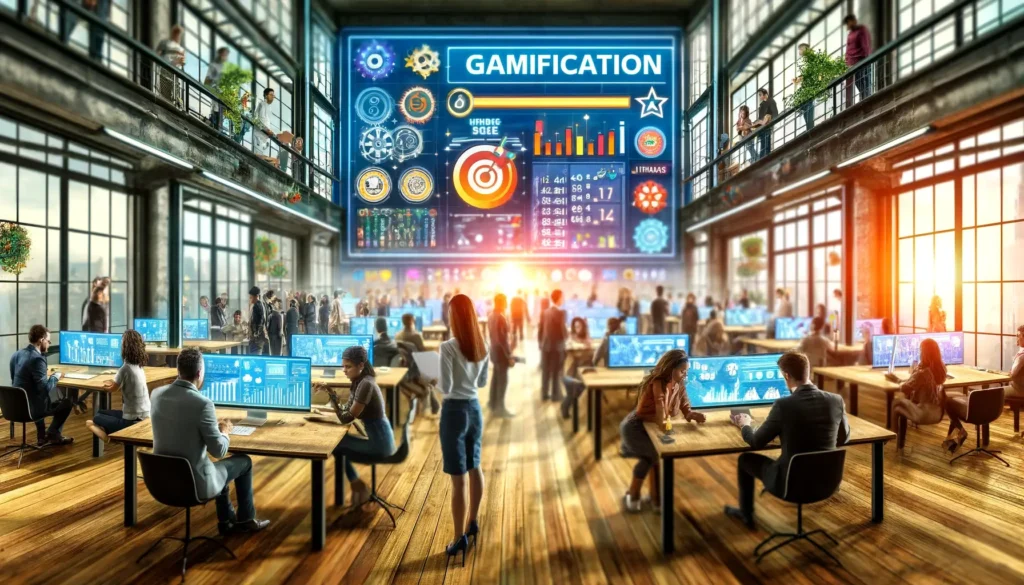
Gamification is the process of adding game-like aspects to marketing initiatives in order to increase engagement and improve lead acquisition. By transforming ordinary encounters into entertaining challenges, this method improves the effectiveness and engagement of the lead generation process.
Businesses may greatly boost participation rates and raise the possibility of lead conversion by adding points, contests, and prizes to tasks like surveys or form submissions.
AI’s Role in Optimizing Gamification
- Personalization. AI examines user behavior to tailor challenges and incentives, boosting each person’s relevance and level of involvement.
- Dynamic Modifications. AI modifies game components in real-time in response to player input to preserve the ideal degree of difficulty and intrigue.
- Efficiency in Feedback. AI offers instantaneous insights on how well gamification components are working, enabling prompt modifications to optimize engagement and lead generation.
7. Real-Time Engagement with AI Chatbots
Artificial intelligence (AI) chatbots improve consumer engagement in real-time by promptly answering questions, customizing messages, and effectively assisting users with lead creation.
Key Benefits of AI Chatbots:
- Instant Communication. Chatbots provide prompt responses on social media networks, preserving user interest and expediting the lead-generation process.
- Seamless Integration. Chatbots can easily capture leads from a big and engaged online audience by integrating with social media and starting discussions depending on user behaviors.
- Guidance and Resolution. In real-time, they respond to inquiries from users, immediately answer problems, and walk prospective leads through the decision-making process.
Navigating New Google Policies for Effective Lead Generation
Businesses utilizing SEO, referrals, and content marketing to generate leads should ensure they are up to date with Google’s most recent changes. In 2024, Google focuses more on ensuring companies make and share educational content and offering real-time reviews of their partners . This indicates that Google is sticking to its guns in terms of providing a better user experience since more content informs, entertains, and educates than content that is designed to drive traffic.
Adapting to Google’s Helpful Content Update
- Put Quality First. Make sure that the questions and requirements of your audience are answered in a direct manner in your content. The real value should be added to the content, not merely search engine optimization.
- Avoid Over-Optimization. Refrain from using excessively complex SEO techniques and keyword stuffing. These days, Google’s algorithms are getting better at identifying and penalizing these kinds of strategies.
Aligning with Google’s Review Guidelines
- Encourage sincere, unbiased customer reviews to foster authenticity. Google has revised its policy to promote genuine user feedback by filtering out fraudulent or paid reviews.
- Honest Practices. Make sure your review procedures follow Google’s guidelines and are fair and honest, including clearly disclosing any incentives offered in exchange for evaluations.
How AnyBiz.io Can Enhance Your Lead Generation Strategy
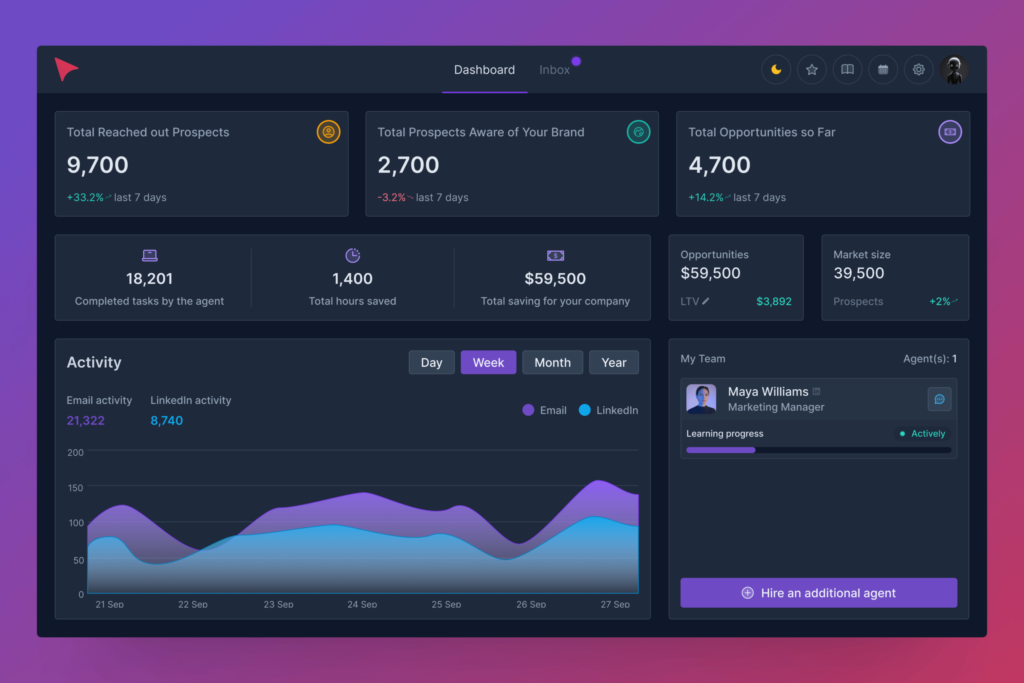
AnyBiz.io is a vital tool for contemporary organizations trying to properly take advantage of the newest marketing trends because it effortlessly incorporates state-of-the-art AI-driven tactics to optimize and improve lead generation procedures.
Integration of AI-Driven Strategies
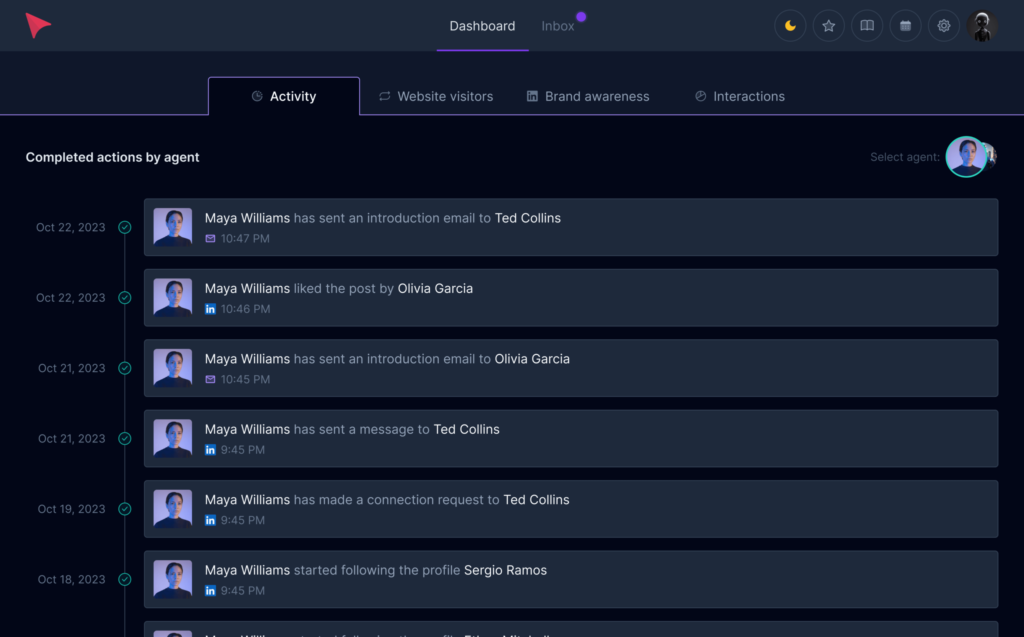
AnyBiz is revolutionizing B2B lead generation through the use of powerful artificial intelligence. Its AI-powered sales representatives can interact with prospective clients via targeted outreach across many channels. In comparison to old techniques, this ensures that every prospect receives communication that is specifically matched to their interests and recent activity, strengthening personalization and increasing engagement rates.
Features of AnyBiz Tailored for Modern Marketing Trends
- AI-Driven Analytics. AnyBiz uses advanced analytics to keep learning and refining its tactics. Through hourly analysis of more than 10,000 data points, it adjusts and improves strategies to optimize the efficiency and efficacy of sales efforts.
- Campaign Management across Multiple Channels. The software is excellent at handling a variety of outreach channels, such as Twitter, LinkedIn, and email. By ensuring that all communications are coordinated across several platforms, this feature preserves consistency and expands the reach of marketing campaigns.
- Automated Customer Interactions. AnyBiz minimizes the amount of manual labor needed to handle customer interactions, from setting up meetings automatically to categorizing and answering emails without human assistance. Its system is a complete lead generating solution because it can manage both outbound and inbound marketing.
- Special AI Sales Agents. AnyBiz’s AI sales agents are intelligent decision-makers rather than merely automated tools. They can interact with clients in more than 30 languages, expanding their pool of potential clients and making sure no group is overlooked.
- Automated Meeting booking. Sales teams can concentrate on completing business rather than booking meetings and calls thanks to AnyBiz’s automated meeting and call scheduling, which requires very little human involvement.
AnyBiz positions itself as a game-changer for companies looking to scale their sales operations effectively by utilizing these cutting-edge technologies. Its versatility is further enhanced by its ability to manage large prospect databases and interact smoothly with current CRM systems. This makes it an ideal partner for taking advantage of AI-driven lead generating trends in 2024 and beyond.
Conclusion
Looking ahead to 2024, then, the top AI lead generation trends will be enjoying the younger generation with tactics that incorporate viral video marketing, memes, immersive experiences, and one-on-one echoes. It uses the ability of AI to reach out to a population that has grown up with technology and demands a greater amount of active engagement.
In this environment, AnyBiz is critical, blending these more advanced AI technologies to smooth and boost the lead generation process.The use of AI can serve to routinely fulfill and complete that potential of the younger generation in two ways. Knowing this puts more focus on using a technique like AnyBiz, which means it’s not only critical to remain in opposition to the curve but to actively make the most of it because of the competitiveness of that field.
Related article:
- AI-Driven 10 B2B SaaS Lead Generation Strategies [+Examples]
- Best 20 Lead Generation Tools for Prospecting [AI-Driven]
- Inbound vs Outbound Email Marketing: Difference in 2024
FAQ
What will be the main developments in AI lead creation in 2024?
The most popular trends are influencer partnerships, gamifying lead generation, using AI chatbots to engage potential customers in real-time, creating immersive experiences with AR and VR, using memes and pop culture for engagement, and leveraging viral video marketing on platforms like TikTok.
How do tailored suggestions powered by AI operate?
Artificial intelligence (AI)-powered tailored recommendations customize product or service recommendations by analyzing user data such as browsing history, buying behavior, and interactions with past content. This AI feature makes marketing efforts more relevant, which raises engagement and conversion rates dramatically.
Why is gamification considered an effective lead generation strategy?
Because gamification introduces elements of gaming into marketing methods, it automatically raises user participation and engagement. This is why gamification is so successful. These components, which increase the lead generation process’s enjoyment and engagement and raise conversion rates, include challenges, prizes, and interactive activities.
How might AI chatbots improve interaction in real time?
Artificial intelligence chatbots are capable of providing prompt answers to user questions, tailored information, problem-solving, and lead generation funnel guidance. By remaining accessible around-the-clock, providing prompt assistance, and engaging in interactive conversation with prospective clients, they improve real-time engagement.
Why is it important to align lead generation strategies with new Google policies?
If you want to be sure that your material appears highly in search results, you must comply with Google’s revised policies. Sincere reviews and beneficial, user-centric material are now given priority in Google’s policies. Following these recommendations ensures that SEO, content marketing, and referral tactics continue to be effective and meet Google’s requirements for valuable, high-quality content distribution.
